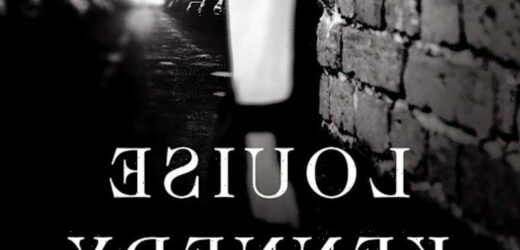By Cameron Woodhead and Steven Carroll
Book critics Cameron Woodhead and Steven Carroll cast their eyes over new fiction and non-fiction releases. Here are their reviews.
Fiction pick of the week
Credit:
Trespasses
Louise Kennedy, Bloomsbury, $26.99
A doomed romance comes alive through subtly textured realism in Louise Kennedy’s Trespasses. The novel is set in 1970s Belfast during the Troubles, where Cushla, a Catholic primary school teacher, risks her life in pursuit of an affair. Her older lover, Protestant barrister Michael Agnew, is known for defending unjustly accused Catholics. He’s charming, sophisticated, has a coterie of bohemian friends and is also unfortunately married.
Their clandestine amour plays out in a chiselled and striking prose style, amid an atmosphere charged with menace as violent sectarianism grips the city. The book’s emotional intensity is achieved through restraint, anchored as it is by acute observation and narrative discipline.
Trespasses is one of the rare literary novels that compels with every sentence, and it’s a pleasure to read an Irish writer whose prose style is so masterfully assured.
Credit:
Homesickness
Janine Mikosza, Ultimo Press, $32.99
This fractured memoir from Janine Mikosza straddles the uncertain border of the fiction/non-fiction binary. It is structured around the 14 houses Janine (Jin) lived in before she turned 18 and the abuse she suffered and survived in them, but it takes up an unusual fictional technique.
The subject has been split into two women – one who listens and writes, another who relates her experiences – and the division lends a dissociative aura to the musing critique on memory and storytelling that emerges.
It’s a surprisingly nimble metafictional device for grappling with questions of disrupted identity. The form also allows Mikosza to dramatise and to openly interrogate the psychological effects of both complex trauma, and the recollection of it, in a way that resists the pitfalls of misery memoir.
Credit:
Metronome
Tom Watson, Bloosmbury, $23.99
Authoritarian control over women’s bodies has become, since The Handmaid’s Tale, a much-mined trope of dystopian fiction. Tom Watson’s Metronome constructs a remote gulag for reproductive crime.
Whitney and Aina have been sentenced to 12 years in exile after having a baby without permission from the State. Their prison lies on a remote island in the Arctic. Escape is impossible due to the lethal effects of climate change: poisonous spores have been released from the permafrost, and inmates must take prophylactic pills every eight hours or die. And yet fantasies of escape vie with obeisance to the system as their exile drags on.
Tom Watson paints the surfaces of his dystopia with dark imagination, but the narrative lacks depth and fails to convince both at the level of individual character development, and in navigating a permutation of society and culture that could plausibly have led to the scenario it presents.
Credit:
An Unholy Alliance
Kate Hamilton, $18.50
An Unholy Alliance is Australian comic crime fiction set in Nimbin. It has a Shane Moloney-like angle: Frank Phelan is a political exile – a Labor man reduced to muckraking private detective work in Canberra, until he gets a call from a former Prime Minister asking for a favour. Soon Frank has been called in to track down a missing woman in Nimbin, and the trail leads him, together with dogged journalist April Moreland, into an underworld of drug-dealers and cult-like communes, where hippies and organised crime, police corruption and a natural disaster all lie in wait.
It’s a promising idea for a novel let down by loose execution. An Unholy Alliance isn’t sharply written or witty enough to excel as comedy. The prose style is prolix; the dialogue is especially insipid and long-winded and struggles to differentiate characters through voice. Hamilton does have potential as a comic writer but will need to embrace a snappier style with fewer dead sentences to realise it.
Non-fiction pick of the week
Credit:
Unknown
Akuch Kuol Anyieth, Text, $34.99
This is a haunting, behind-the-headlines refugee tale. South Sudanese born Akuch (her name means “unknown”) Kuol Anyieth, charts in measured, vivid writing a most extraordinary life – from living in a refugee camp in Kenya with her family for nine years while her father was engaged in the “never-ending” civil war in South Sudan, to Nairobi and eventually migration to Australia in 2005, where doors opened by themselves, “paradise for sure”.
Her descriptions of the dust, heat, violence and rape in the camp is chilling, but as much as they felt they’d escaped it all, the trauma and brutalisation followed them into suburban Melbourne (mixed with racism) – especially the domestic violence caused by her brother. In many ways, she’s bravely examining the contrasting worlds she’s experienced, with determination and remarkable poise.
Credit:
The Great Experiment
Yascha Mounk, Bloomsbury, $29.99
When Yasha Mounk, associate professor of international affairs at Johns Hopkins, was interviewed in Germany saying that western democracies were embarking on a unique experiment in transforming monoethnic/monocultural democracy into a multiethnic one, the hate mail he received from the alt-right was instant and massive.
For him, it’s emblematic of the pessimism of the age, both alt-right and far left – that western democracies will not be able to effect this transformation and the mantra of the right, for example, that western democracies are surrendering to diversity will prevail. This is what he calls the “Great Experiment”. And it may fail. But, in treading the middle path, he remains ‘unfashionably’ optimistic, stressing that democracies have made significant progress in the last 50 years. Accessible, timely and informed.
Credit:
The Shortest History of Greece
James Heneage, Black Inc, $26.99
You might think you know Greek history, but this highly entertaining, synoptic study charts the epic sweep and complexity of it – as well as being a reminder that, overall, western values come from the pagan, classical world, especially Greece.
Novelist James Heneage, in taking the reader through 3000 years of history, not only takes in the major events and figures – from the two-state rivalry of Sparta and Athens, the Peloponnesian War, Plato and co, the birth of democracy, through the Middle Ages to independence from the Ottoman Empire, Metaxas, juntas, Rebetiko (Greek blues), Nazi occupation, the EU and the current state of play – but also introduces lesser known figures such as General Epaminondas who led the victory over Sparta, and points out that Byzantium was basically Greek. A colourful marvel of compression.
Credit:
Margaret Guilfoyle
Anne Henderson, Connor Court Publishing, $19.95
As Anne Henderson observes early in this short survey of Margaret Guilfoyle’s career, when she first became a Liberal senator in 1971 “she was no feminist with a burning desire to overthrow the status quo”. More in the style of Dame Edith Lyons, she saw herself as representing the whole constituency. But by the end of her career she had become something of a trailblazer for women, especially her work in trying to bring more women into the Liberal Party.
Henderson maps Guilfoyle’s life from Ireland to suburban Melbourne, marriage (giving up the illustrious surname McCartney!) joining the party and beating the odds to get senate pe-selection. Focusing largely on her years as Finance Minister in the Fraser government, this is an informed, adept study in modesty and practicality, of a politician respected for getting things done.
The Booklist is a weekly newsletter for book lovers from books editor Jason Steger. Get it delivered every Friday.
Most Viewed in Culture
Source: Read Full Article









